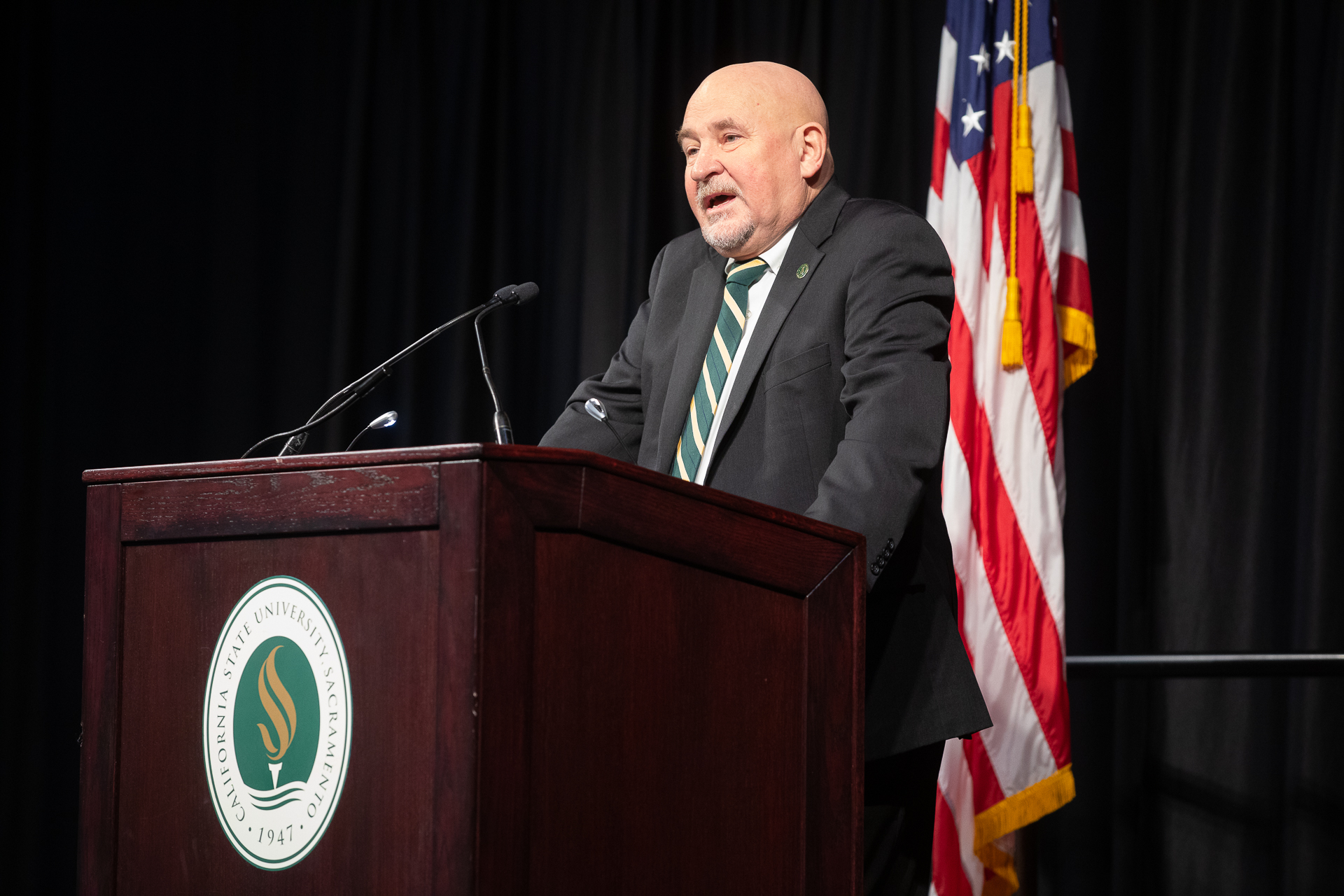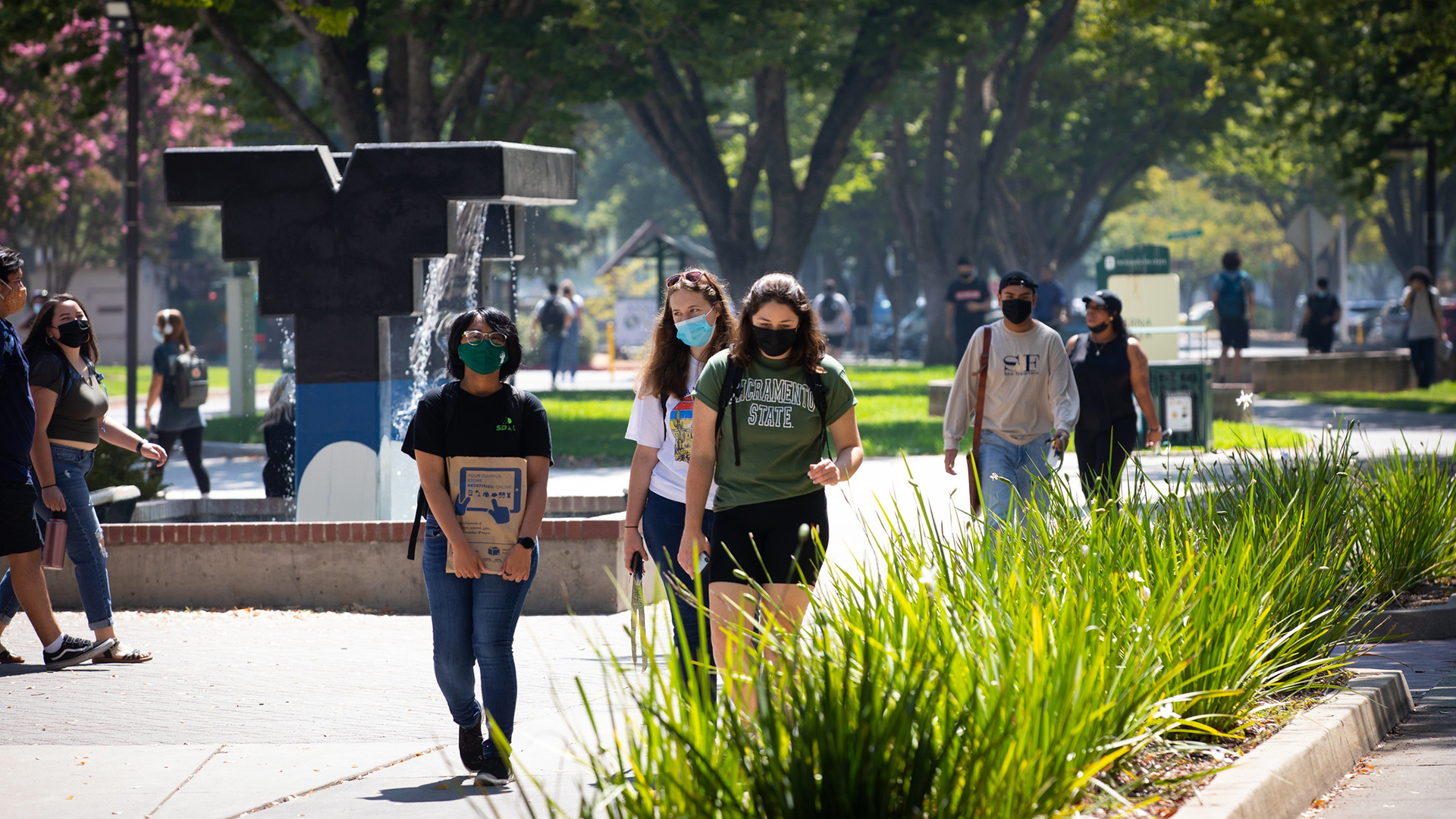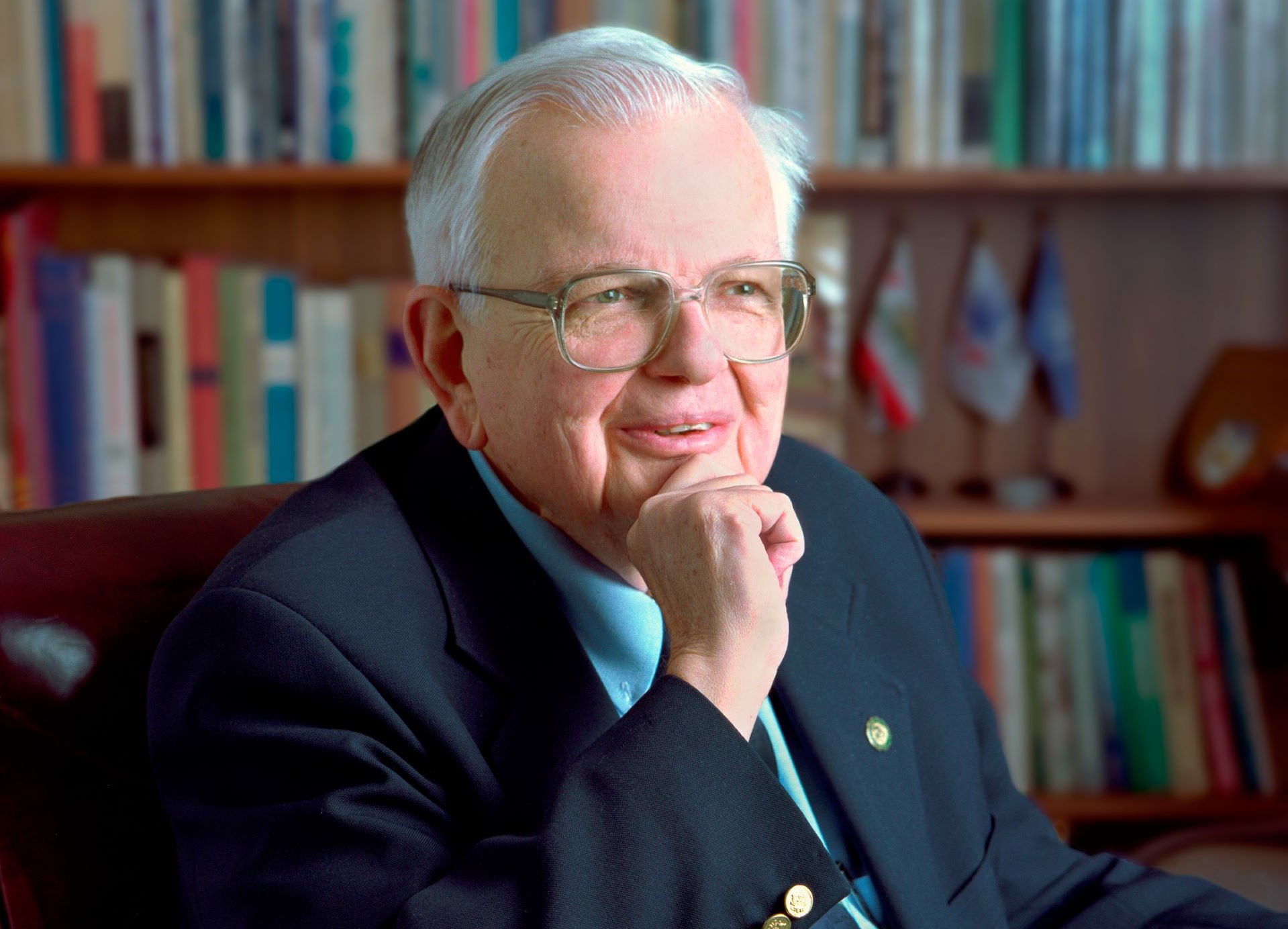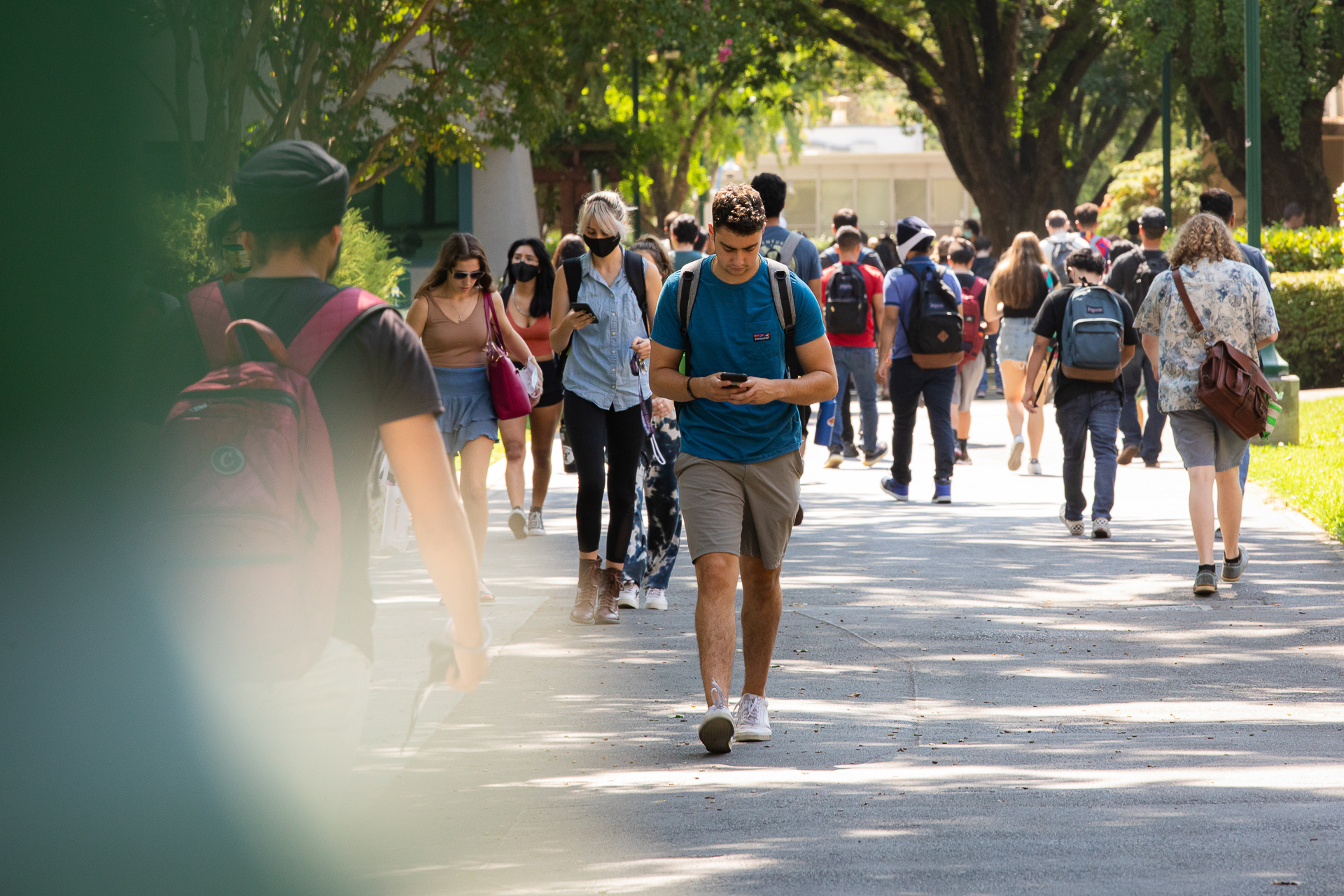Story Content
In Spring Address, President Nelsen calls for healing and continued progress toward graduation, equity goals

January 21, 2022
Sacramento State will dedicate more than $1 million toward engaging with and encouraging the return of students who have dropped out of school because of economic hardships, including those related to the ongoing COVID-19 pandemic, President Robert S. Nelsen announced Friday during his Spring Address.
The University is refining its highly successful Finish in Four and Through in Two graduation campaigns – the University’s programs under the CSU Graduation 2025 initiative – to place a sharper focus on students who “need a boost” because of financial and other barriers, Nelsen said.
“We must focus on those who have not had the opportunities that others have, those slowed and all too often held back because of opportunity gaps,” he said during the speech, which was delivered virtually and streamed live.
- Video: President Robert S. Nelsen’s Spring Address
- Read the complete transcript of the Spring Address
- President Nelsen named 2021 Sacramentan of the Year by Metro Chamber of Commerce
Among other things, Sac State will reach out to hundreds of students who left school in recent years, expand opportunities for summer courses, and work to reduce the number of students who fail or withdraw from certain classes. In addition, the University will expand Hornet Launch, which strategically schedules courses for first-year students to pave the way for graduation, to include sophomores as well.
The effort is part of a larger goal toward becoming what Nelsen calls a “healing university” that helps bridge divides in a nation reeling from two years of pandemic life, economic hardships, political strife, and racism.
Nelsen cited Sac State’s numerous achievements during the pandemic, including its pivot to online learning, its steadily improving graduation rates, and its efforts to combat COVID-19 through testing and efforts to ensure vaccinations for students and faculty, and staff.
He also noted the success of the University’s On The Rise comprehensive fundraising campaign, which is poised this spring to surpass its $225 million goal. Those funds will help the University double its scholarships and create more endowed chairs. A 5% budget increase from the state will support student success, access and equity, Nelsen added.
Nelsen offered emotional thanks to “everyone who taught a class online, everyone who came to campus to process financial aid, every campus safety officer and every police officer who kept our campus safe, every custodian who every night cleaned and sanitized our buildings, every groundskeeper,” and many others who kept Sac State moving forward during challenging times.
“I can’t wait to celebrate all of you when the current Omicron spike recedes,” he said, though he added that significant work remains.
“Never in my lifetime has education needed to concentrate so much on healing,” he said.
Sac State will create a Strategic Plan that Nelsen said is designed to unite the campus, and ultimately the community at large.
The plan “will have goals and metrics that ensure that we provide students with an excellent education, that we truly do transform their lives, and that we transform our community and our region” as a result.
It will be driven by Sac State’s five key imperatives: Student Success, Diversity and Inclusion, Community Engagement, Philanthropy, and Safety and Health. It also will further the administration’s goals of being both an “Anchor University” with deep roots in the community as well as an antiracist institution, the President said.
The plan will implement critical recommendations from the Antiracism and Inclusive Campus Plan and the Anchor University Task Force Report.
On Feb. 14, Sac State will convene a University-wide Convocation that Nelsen said will “lay the foundation for our transformation by acknowledging the hard truth of the impacts of racism and exclusion on communities of color and those who have been marginalized.” Speakers will talk about past, present and future efforts to end racism and other forms of bias. A key goal is to put into action and practice initiatives outlined in the plan.
Some of the hard work is underway, Nelsen said. Sac State has begun analyzing data regarding both employee hiring and employees who leave the university, and will seek to ensure that its faculty better reflects “our student body and our Sacramento community,” he said. The University will examine tenure and promotion policies, and seek to build a stronger mentoring system.
Even with those changes, “our work will not be done.”
“There will always be more students, and Sac State will be here for them, here to serve our democracy, here to heal our country until it needs healing no longer,” he said.
“Now more than ever, we need to believe in each other.”
*****
Are you interested in supporting Sac State programs? See your giving options here.
Media Resources
Faculty/Staff Resources
Looking for a Faculty Expert?
Contact University Communications
(916) 217-8366
communications@csus.edu


